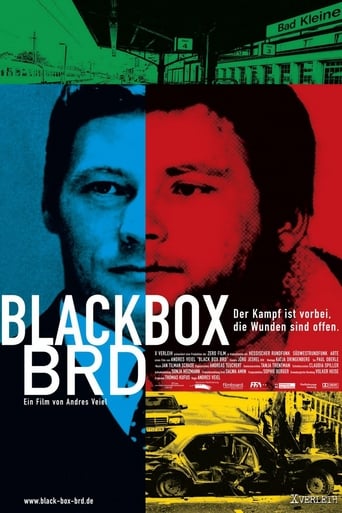


Black Box BRD
Black Box BRD steps back into German history, showing the Federal Republic of Germany of the 70s and 80s. The country is polarized due to the power struggle of the German state and the "Red Army Faction". Society is torn, the fronts are irreconcilable. The life stories of both Wolfgang Grams and Alfred Herrhausen are tragically linked to this era. Grams is the one who takes up arms for moral rigor; Herrhausen however seizes power and dies when powerful.
-
- Cast:
- Helmut Kohl , Matthias Dittmer , Albert Eisenach


Similar titles
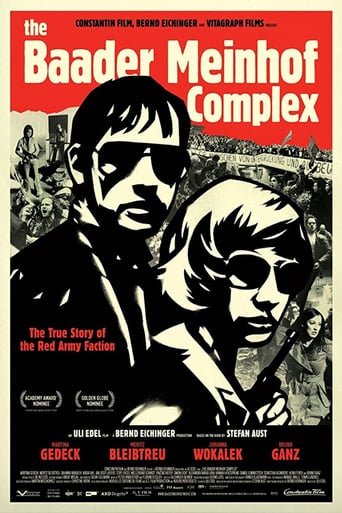
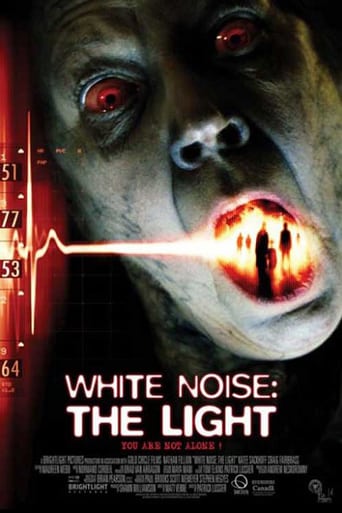
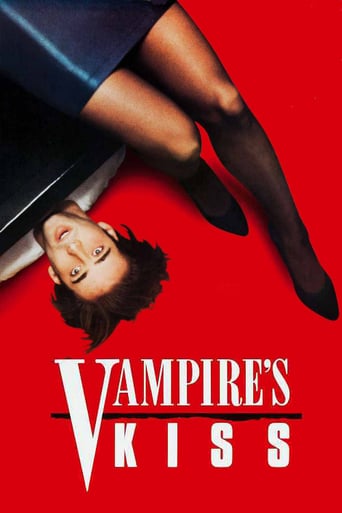
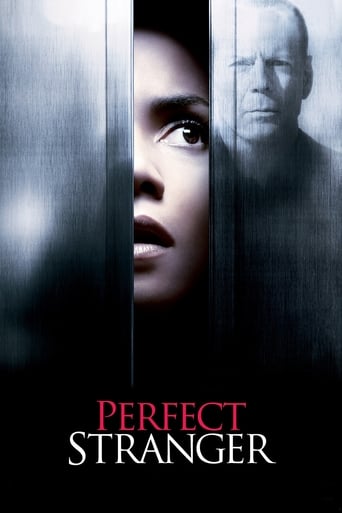
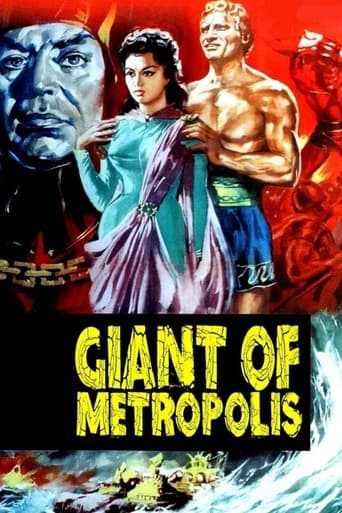
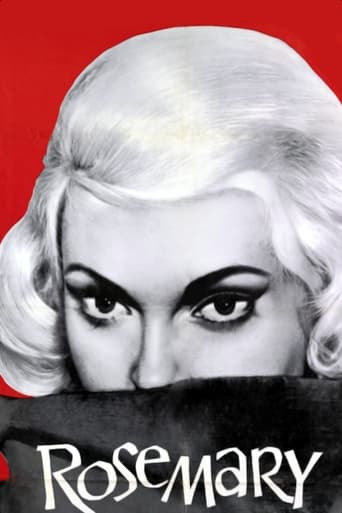
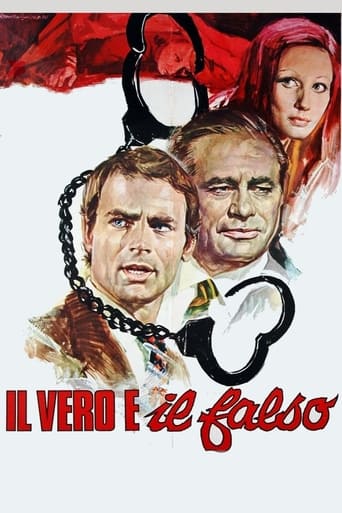
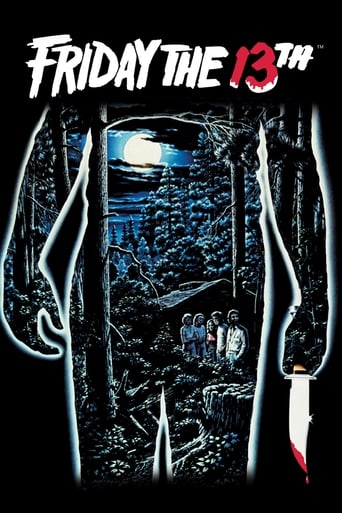
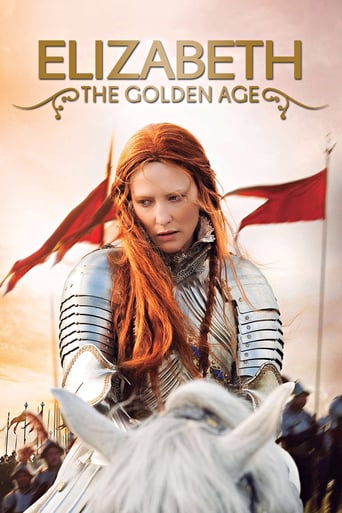
Reviews
The Worst Film Ever
Sick Product of a Sick System
This is a small, humorous movie in some ways, but it has a huge heart. What a nice experience.
The joyful confection is coated in a sparkly gloss, bright enough to gleam from the darkest, most cynical corners.
This movie attempts to turn something into history. By treating both sides of the intense conflict between the leftist terrorists and the political elite of postwar West Germany in the 70s and 80s with equal respect, its main message is, perhaps, this: it's all over. The movie shrugs off the ideologies involved and turns its focus on the two biographies of Grams and Herrhausen instead.Some of the previous comments have remarked that those two really didn't have much in common. Even their involvement with terrorism wasn't particularly similar - Herrhausen, the banker, was simply a victim. He had known, of course, that he was a likely target, but only his death, not his life was molded by the RAF terrorist movement. Grams, on the other hand, was a terrorist for roughly two decades, and died, most probably by suicide, during a shootout with the police. I believe that the only way in which these two biographies could be linked (without a tremondous, and strained, analytic effort) was by representing them both as parts of an historical phenomenon. The movie doesn't really need a clear connection between its two protagonists other than this: they're part of the same historical constellation. It doesn't aim at explaining this constellation. It aims at telling us that it IS historical.How could this be of interest to German audiences? While I don't want to reduce the movie's appeal to this - there's a lot of intriguing material in it - I think the explanation lies in the German present, not in the past. Mostly unnoticed, overshadowed by the more severe transformations in the Eastern part of the country, the old West has changed quite thoroughly as well. And the changes are accompanied by certain tendencies of framing recent history in collective memory, as it were. We now like to regard all the political conflicts of the years before 1989 as finished and done with. Germany, we want to believe, is totally different from what it was back then. This urge for discontinuity is rather questionable, actually... Anyway, that's where both the fascination and the problems and perhaps the ultimate failure of the film lie. Or so I think.
There was a good story in here waiting to get out but the director failed to find it. There was a huge amount of back-story to the two main people but none of it turned out to be at all relevant.There was no known connection between Wolfgang Grams [the terrorist] and Alfred Herrhausen of the Deutsche Bank [the terrorism victim]. The film-makers would have been better served if instead of following the story of Grams they had followed the alleged killers of Herrhasusen - while no one has been arrested in connection with his murder, some group must have claimed responsibility [RAF?].The revelation late in the film that Herrhausen wanted to erase debts from the third world, and was possibly in a position to enable that, made him a sympathetic character. He also seemed to be causing problems with his peers at Deutsche Bank through what was seen as an insane, liberal concept. His murder seemed to be a very stupid choice for an anti-capitalist terrorist act.It was two seperate stories and made for unsatisfying viewing.
This documentary has some interesting contents but it doesn't quite know what it wants to be. The end credits show that there was a dramaturgical consultant who obviously told the filmmakers to include pop music at some points of the movie, but who didn't succeed in helping them to make a point on the material they had shot.The film investigates the lives of two men who were both killed: Alfred Herrhausen was assassinated by the Red Army Faction in 1989, and Wolfgang Grams, an RAF member himself, died at a police operation in 1993. Grams might or might not have been involved in Herrhausen's death; that's the only interface between them. In the movie, which consists exclusively of archive footage and interviews and which does not use an off-voice commentator at all, it never becomes clear why the filmmakers didn't make two separate films, or why they chose precisely these two people for their documentary.The two lives did not have much in common, but each taken on its own, they were interesting. The movie is most amazing whenever people tell about certain crucial events in Grams's or Herrhausen's lives. In between, I felt its length to too large an extent.
if you want to learn something about german post-war history, maybe this documentary movie is the best way to achieve that. the director succeeds in connecting the events that happened in the years succeeding to "1968" - especially the so-called terrorism - to the pre-history of nazism in the time before 1945, a history that had a major impact on germany till at least 89 and maybe even beyond. note thet the father of wolfgang grams was a member of the "WAFFEN-SS", one of the most notorious institutions of the "third reich". and herrhausen as a child was trained at first in the "hitler-jugend". with all the differences among the two men, there's one thing they have in common : in the end both of them were loosers or at least felt that way.

